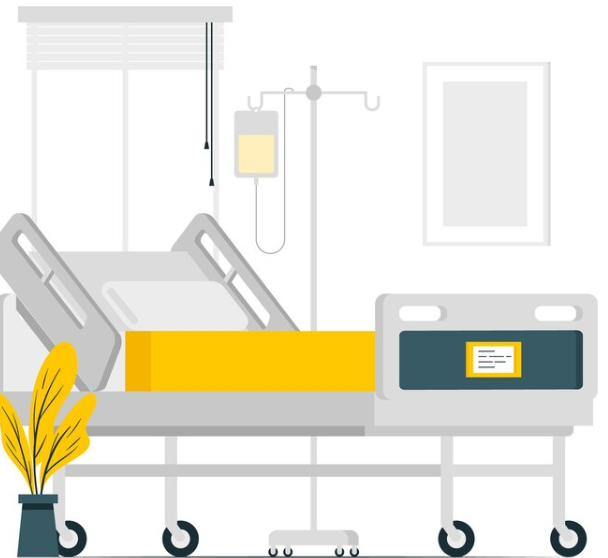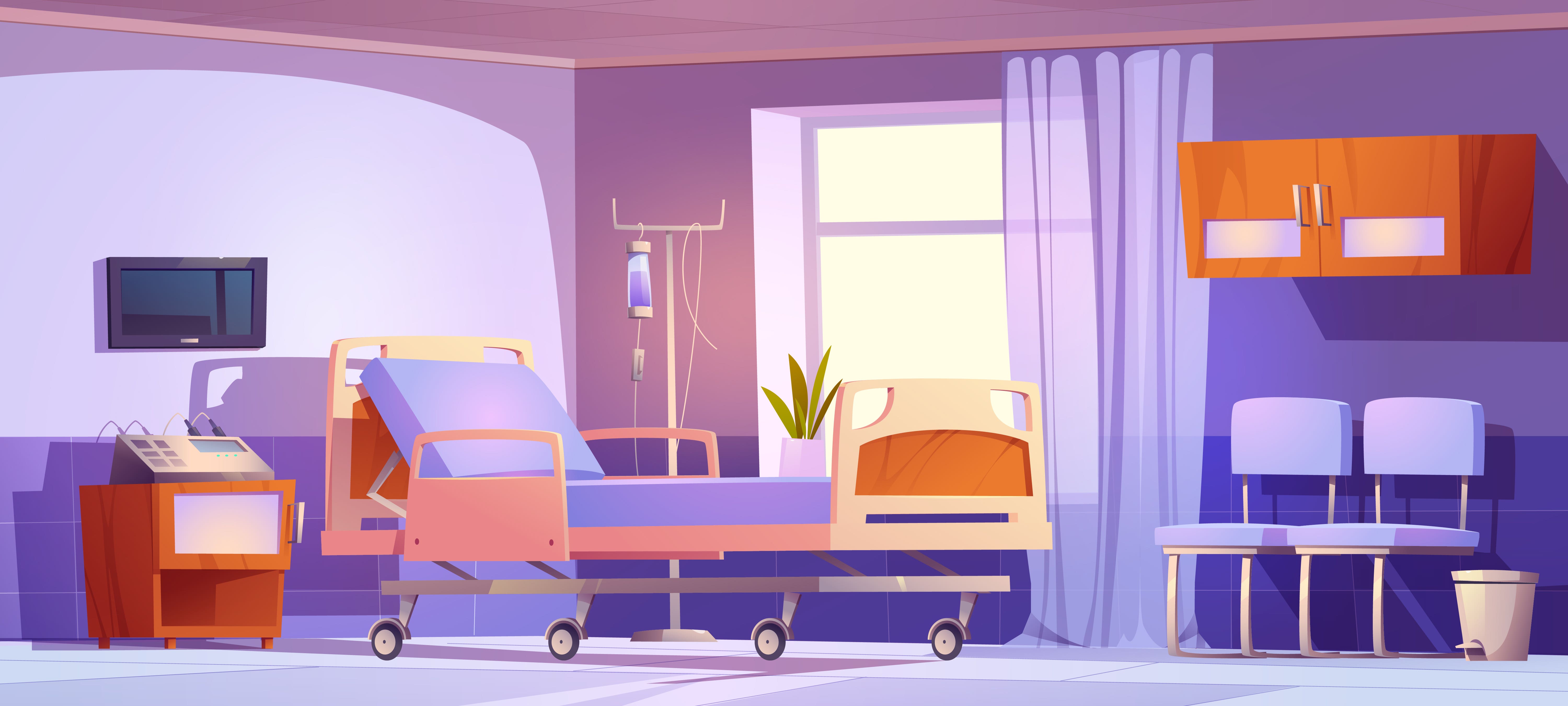


Considering a long term home care bed for yourself or a family member?
You may be facing a very important decision: is it better to rent or purchase a home hospital bed?
Instead of purchasing for full price outright, some families find it beneficial to rent a hospital bed for a set monthly fee.
In this blog, we’ll go over the benefits– and drawbacks– of each option so that you can make the best decision for your family.


Renting a Hospital Bed
Pros
Lower Upfront Costs
Compared to purchasing a hospital bed, renting requires a much smaller initial investment. The costs of renting a hospital bed can vary considerably depending on supplier, model, add-ons, and more.
However, here is a baseline approximation of costs:
- Full Electric Hospital Beds
- Weekly rates: $195-$250
- Monthly rates: $210-$399
- Semi-Electric and Manual Hospital Beds
- Weekly rates: $45-$90
- Monthly rates: $150-$195
Keep in mind that additional fees may apply, such as a delivery fee, pick-up fee, installation fee, and more.
Short Time Commitment
While some individuals purchase a hospital bed to use for years, others may only require a bed for a short period of time. For those recovering from surgeries, strokes, and more, an at-home hospital bed may only be necessary for a couple of months. This can also be a useful solution when a loved one stays with you for a short period of time.
By renting a hospital bed, you can meet any medical needs without a long-term commitment. Simply return the bed when you no longer need it!
Maintenance Included
Renting a hospital bed often comes with less maintenance responsibility. Maintenance and repair costs are often included in the rental agreement, eliminating the risk of additional unexpected costs.
Flexible Options
With thousands of options available on the market, choosing which hospital bed to purchase can be overwhelming.
When renting a hospital bed, it can be simple to return or exchange a bed for a different model if it doesn’t suit your needs. What if you buy a semi-electric, only to find that you’d prefer a fully electric bed? What if you bought a hospital bed in the incorrect size?


When renting a hospital bed, it can be simple to return or exchange a bed for a different model if it doesn’t suit your needs.
Cons
Higher Long-Term Costs
While renting a hospital bed offers lower upfront costs, it can become significantly more expensive in the long run. Over an extended period, rental fees can stack up to be greater than the cost of an outright purchase! Not only will you be paying more, but you won’t own the bed at the end of your rental term.
Limited Choice
While there are usually several options available when renting a hospital bed, it will likely be a more limited selection compared to purchasing options. In order to cater to a broad range of needs, rental companies will typically stock more standard models.
If you’re looking for a true range of every model, add-on, or feature on the market, purchasing is the way to go!
Not sure of what features or customizations to look for? Check out our complete guide on purchasing a home hospital bed.
Potential Quality Concerns
If you’re renting a bed that multiple patients have used, the bed may be subject to wear and tear. While most reputable companies take steps to maintain their equipment and keep it in top condition, there’s always the chance of receiving a bed nearing the end of its service life.


Buying a Hospital Bed
Pros
Cost-Effective for Long-Term Use
While the initial investment of a home hospital bed is higher than a rental, the cost savings are apparent over time! For those looking to use a hospital bed longer than 6 months, consider purchasing a bed instead of renting. You’ll likely save money in the long run!
When you’re done with your hospital bed, you can recoup some of your investment through reselling.
Customization Options
Have specific needs or preferences? Whether you’re looking for a bariatric bed, soft bed rails, an extra-long bed, or any other specification, you’ll be able to purchase a bed that fits your customization preferences.
There are hundreds of options and customizations available on the market– purchasing outright gives you the flexibility to choose exactly the model that works best for you or a loved one.
Ownership/Peace of Mind
As an outright owner, you have complete control over the hospital bed’s maintenance, cleaning, and care. You don’t need to worry about rental agreements, unexpected returns, or the long term costs of rentals.
Cons
Higher Upfront Investment
Compared to renting a home care bed, purchasing a hospital bed requires a much larger upfront investment. Home hospital beds can range from $700-$8,000, depending on the bed model.
If you’d like the benefits of a purchased bed, without the full upfront cost, consider asking your DME provider if they offer month-to-month payment plans. Med Mart works with providers like PayPal to offer 6, 12, 24, and 36-month payment plans to qualified buyers.
Responsibility for Maintenance and Repairs
Outside of the warranty period/restrictions, additional repair costs for a hospital bed will be the owner’s responsibility. If you need to replace the hand control, repair a motor, or purchase new casters, the cost may fully fall to the owner.
Storage When No Longer Needed
What happens if you no longer need a hospital bed in your home? It will be your responsibility to create space to store the hospital bed, resell, or dispose of it. In contrast, a hospital bed rental company handles the pick-up of beds that are no longer needed.
Choosing to rent or purchase a home hospital bed depends on your budget, the length of time the bed is needed for, customization preferences, and more.
Need some assistance in deciding what method is best for you or a loved one? Contact our team of product experts here at Med Mart. With over 30 years assisting families find the best DME solutions for their home, we can help you select the perfect home hospital bed.